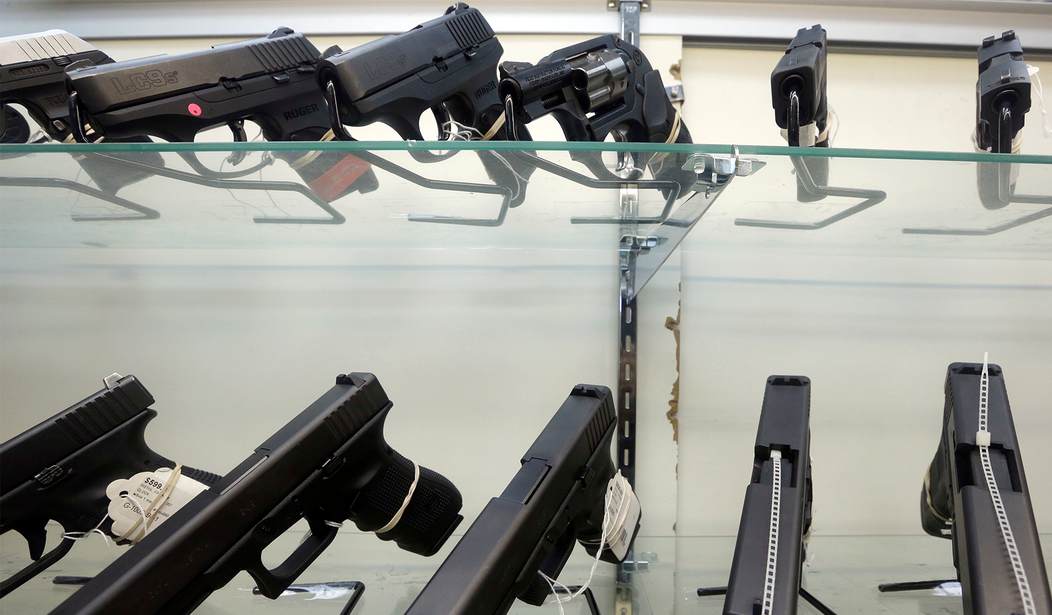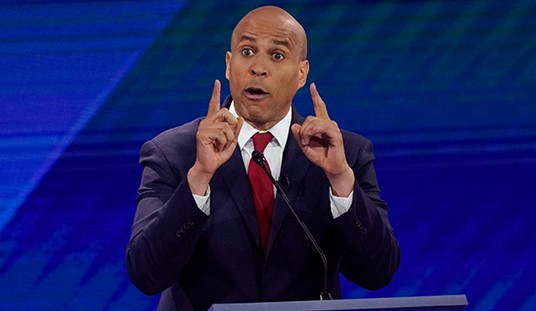The opinions expressed by contributors are their own and do not necessarily represent the views of RedState.com.
One of the anti-gunner lobby’s favorite talking points is that various surveys show that Americans overwhelmingly favor their most radical restrictions on firearms. They use this as proof that their anti-gun agenda enjoys the support of most people.
Those who support gun rights could easily point out the problem with these arguments. It is all in the way the questions are asked when respondents are filling out the survey.
But a new study reveals that when people actually understand the policies about which they are being asked, support for more gun control legislation dwindles. Rep. Thomas Massie (R-KY) and John Lott, a gun rights advocate who also heads the Crime Prevention Research Center (CPRC), penned a piece for Newsweek in which they detailed the findings of a survey conducted by McLauglin & Associates and commissioned by the CPRC.
The authors noted that despite the results of prior surveys showing massive support for gun control measures, Democrats have been unable to pass legislation in most cases. They wrote:
Gun control advocates claim that over 90% of Americans support universal background checks, which would require checks for privately exchanged firearms. Fact-checkers from Politifact and Snopes support these claims. When asked why Congress won’t pass a universal background check law, academics point to the lobbying power of the National Rifle Association.
But in 2016, despite billionaire Michael Bloomberg’s overwhelming financial backing, ballot initiatives for universal background checks failed in Maine by 4% and won in Nevada by less than 1%. In both Maine and Nevada, the background check initiatives had far more financial support, and the media was overwhelmingly sympathetic to the cause.
The article notes that in these surveys, they typically ask simplistic questions like “Do you support or oppose requiring background checks on all gun sales or transfers?”
Indeed, McLauglin’s survey asked this very question and once again found that 86 percent of respondents answered in the affirmative. “All incomes, education levels, and demographics expressed support for such a law,” the report notes.
But then, the survey asked two follow up questions. Here is the first:
First: “These laws are called universal background checks. Let’s say a stalker is threatening a female friend of yours late on a Saturday night. She asks you if she can borrow your handgun until she has a chance to buy one. She is trained and has no criminal record. If you loaned her the gun, this law would make you a felon. Would you support or oppose this law?”
In this case, participants opposed universal background checks by a 44 percent to 42 percent margin.
The second follow-up question asked: “A Boy Scout troop is going for his [sic] skeet shooting badges. If you lend the Scout master your shotguns, you would be committing a felony. Would you support or oppose this law?”
Respondents opposed the policy by a 45 percent to 42 percent margin.
The same motif held true when the survey asked about red flag laws and explained that decisions regarding whether to confiscate someone’s firearms are made by judges with no mental health professionals involved in the process. It also explained that all 50 states already have involuntary commitment legislation designed to address the same problem – but with trained mental health professionals making the call.
When asked about red flag laws vs involuntary commitment, respondents chose the latter by a 40 percent to 33 percent margin.
This is some horrible news for the anti-gunner crowd, which plays largely on the ignorance of their audience to convince them that more restrictions on law-abiding gun owners will keep more people safe. This could also be why, while even the simplistic surveys still show support for gun control laws, this support is still declining.
The report comes after three years of record-level gun sales and a trend in which more Americans are becoming first time gun owners. The skyrocketing crime rates that have rocked the country have definitely contributed to this new paradigm.
Democrats are still fighting the good fight, so to speak. But the more people are educated about guns and the details surrounding the laws Democrats want to pass, the less support the anti-gunner lobby will receive.













